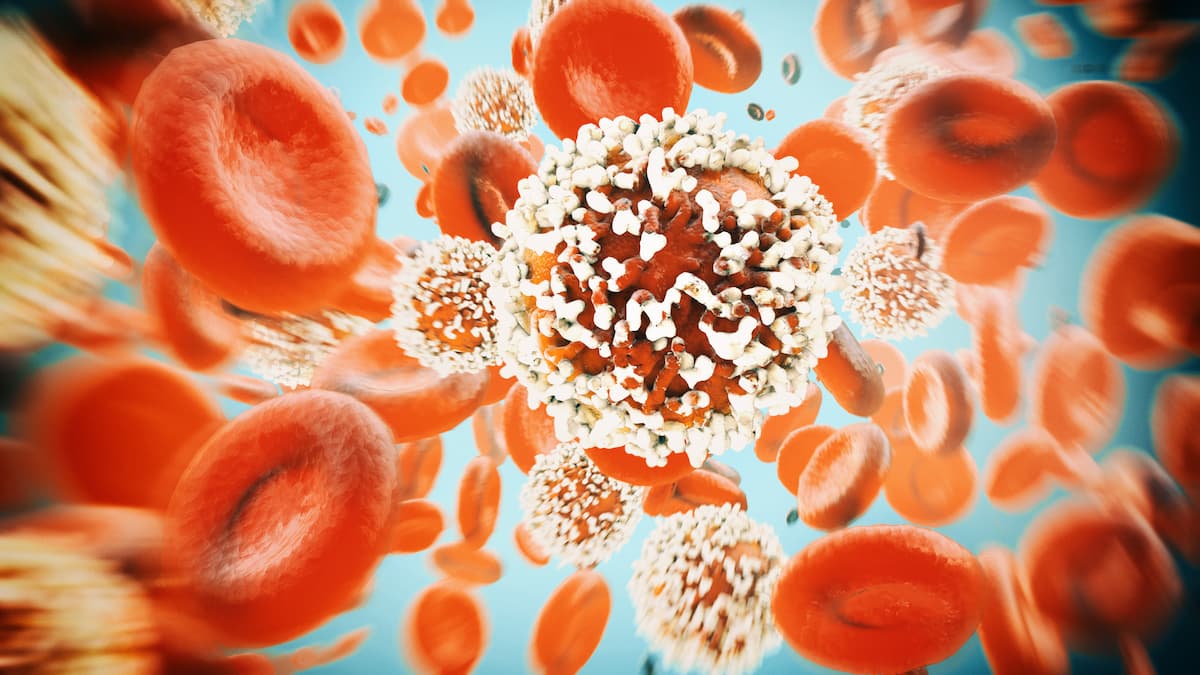Novel CD19 CAR-NK Therapy Yields Responses in Waldenstrom Macroglobulinemia
The CD19 t-haNK therapy alone and in combination with rituximab achieved complete responses and no significant toxicities in 2 patients with late-stage WM.
The CD19 t-haNK therapy alone and in combination with rituximab achieved complete responses and no significant toxicities in 2 patients with late-stage WM.

The CD19 CAR-natural killer (NK) cell therapy CD19 t-haNK alone and with rituximab (Rituxan) demonstrated positive activity in patients with late-stage Waldenstrom macroglobulinemia (WM) in early findings from the phase 1 QUILT-106 trial (NCT06334991), according to a press release from the developer, ImmunityBio.1
The first patient had third-line WM and achieved a complete response with single-agent CD19 t-haNK alone, and the second patient continues to maintain an ongoing complete response at 6 months with CD19 t-haNK and rituximab. A third patient with WM has been enrolled in the trial. All infusions, including CAR-NK cells and cytokines, were administered in an outpatient setting.
It was noted that this was the first trial for patients with late-stage WM to show the potential for complete responses with a chemotherapy-free immunotherapy.
CD19 t-haNK is an allogeneic NK cell line designed to express CD19-specific CAR and a high-affinity CD16 receptor; it is intended to direct CAR-mediated cytotoxicity and augmented antibody-dependent cellular cytotoxicity and augmented antibody-dependent cellular cytotoxicity when paired with the anti-CD20 monoclonal antibody rituximab.
"The preliminary findings we have submitted for presentation at the American Society of Hematology Annual Meeting provides the first evidence that novel immunotherapy combinations without chemotherapy lymphodepletion can provide deep and durable remissions in WM even after multiple prior treatments," said lead author of the findings, Jackie Thomson, MB ChB, MMed, of Wits University Donald Gordan Medical Center in Johannesburg, South Africa, in the release.1 "Recruitment in this rare subset of lymphoma is ongoing to confirm these findings and to establish this chemo-free strategy as a viable treatment option for relapsed WM."
QUILT-106 is a first-in-human, open-label trial evaluating the safety of CD19 t-haNK alone, and the safety and preliminary efficacy of CD19 t-haNK in combination with rituximab in patients with selected CD19-positive and CD20-positive relapsed/refractory non-Hodgkin lymphoma (NHL). As of August 2025, the trial has enrolled 13 patients with NHL across 3 sites in South Africa; 3 of the enrolled patients have WM.
Treatment consisted of an initial single 3-week cycle of CD19 t-haNK as a monotherapy; after a 1-week-long safety pause, patients will receive a single 3-week cycle of CD19 t-haNK combined with rituximab. Those with no evidence of disease progression at the first tumor assessment will be eligible for up to 2 additional 3-week cycles of the combination.
Eligible patients were 18 years or older with histologically documented CD19- and CD20-positive B-cell NHL that has completed 2 lines of cytotoxic chemotherapy, received rituximab or another anti-CD20 antibody, has measurable disease per the Lugano classification, and has CD19- and CD20-positive disease confirmed on the diagnostic or repeat biopsy specimen with a minimum of 5% CD19 and CD20 positivity by immunohistochemistry or flow cytometry required.2 Additional criteria were an ECOG performance status of 0 to 1 and an expected survival of at least 16 weeks.
Exclusion criteria included histologically documented primary central nervous system lymphoma, chronic lymphocyte leukemia, Burkitt, or Burkitt-like lymphoma; known hypersensitivity to sulfa-containing medications; serious uncontrolled concomitant disease; history of significant autoimmune disease; anti-CD20 antibody treatment less than 2 weeks prior to cell infusion; and inadequate organ function.
The trial’s key end points were safety/tolerability and overall response rate (ORR) per standard criteria.
Regarding safety, all patients tolerated the regimen with no significant toxicities reported.
The first patient was dosed with CD19 t-haNK in October 2024.2 In that press release, Patrick Soon-Shiong, MD, executive chairman, founder, and global chief scientific and medical officer at ImmunityBio, said, “We have chosen to undertake this trial because Sub-Saharan African and, in particular, South African populations are often overlooked when it comes to advanced clinical research, despite the need for innovative immunotherapies in the region.”2
References
- ImmunityBio reports complete responses in non-Hodgkin Waldenstrom lymphoma patients with chemotherapy-free, first-in-class CD19 CAR-NK immunotherapy. News release. ImmunityBio. August 13, 2025. Accessed August 13, 2025. https://tinyurl.com/fmecc5mr
- Study for subjects with relapsed/refractory non-Hodgkin lymphoma. ClinicalTrials.gov. Updated January 14, 2025. Accessed August 13, 2025. https://tinyurl.com/ped6e4ma
- First patients dosed in phase 1 clinical study of ImmunityBio’s CAR-NK cell therapy for the treatment of relapsed B-cell non-Hodgkin lymphoma. News release. ImmunityBio. October 2024. Accessed August 13, 2025. https://tinyurl.com/3ndnee2e
Highlighting Insights From the Marginal Zone Lymphoma Workshop
Clinicians outline the significance of the MZL Workshop, where a gathering of international experts in the field discussed updates in the disease state.